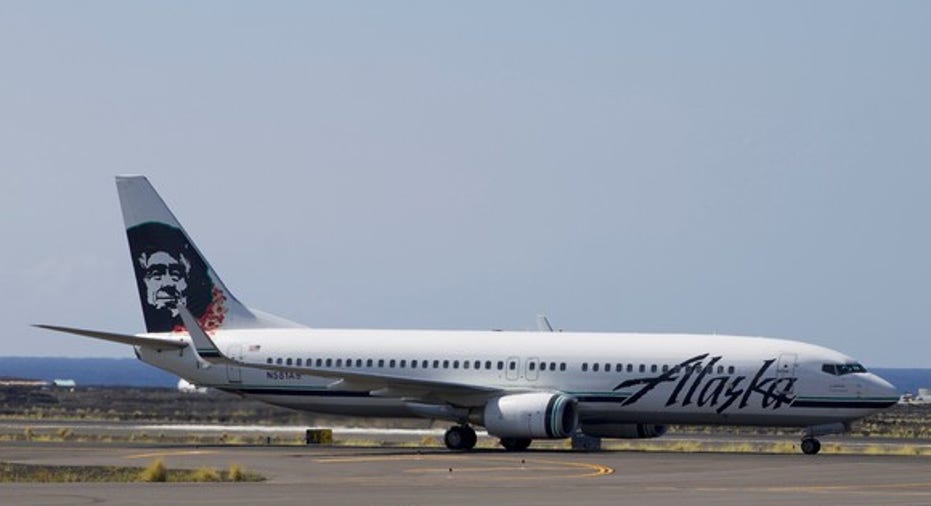Alaska Air Group, Inc. Stock Is a Screaming Buy

A few months ago, Alaska Air CEO Brad Tilden set out a vision for turning his company into the premier airline for travelers on the West Coast by buying smaller rival Virgin America . Yet since the merger was announced, Alaska Air shares have lost more than a quarter of their value.
Alaska Air Stock Performance, data by YCharts
To some extent, this reflects sticker shock after Alaska agreed to pay $2.6 billion for Virgin America: nearly double the latter's value before the merger rumors heated up. Alaska has also faced a tough competitive environment in its hometown of Seattle recently, due to Delta Air Lines' efforts to build a hub there.
Following this massive pullback, Alaska Air stock is extremely cheap: far too cheap, considering the company's strong track record and the potential merger synergies.
Unit revenue is on the decline
As has been the case for many other airlines, Alaska Air has reported significant unit revenue declines over the past year and a half. Revenue per available seat mile (RASM) fell 6.1% year over year in Q1, and Alaska has reported 6.5% RASM declines for both April and May.
Some of this unit revenue weakness stems from the overall weak fare environment. However, Alaska Air has also been negatively impacted by its own rapid growth: It has been increasing capacity at a double-digit rate lately.
Most importantly, competitive capacity in Seattle (by far Alaska Air's largest market) is rising at a rapid clip, due to Delta's expansion there. Total competitive capacity in Alaska's markets rose 13% in Q1 and as of April was expected to increase 14% in Q2 and Q3.
But unit costs are falling, too
The good news for Alaska Air -- unlike many other airlines -- is that its unit costs are declining. In fact, the company has reduced its mainline non-fuel unit costs in 13 of the last 14 years. For 2016, Alaska Air expects to reduce its non-fuel unit costs by another 0.5%.
Alaska Air has steadily reduced its unit costs in recent years. Image source: The Motley Fool.
Additionally, Alaska Airlines has dramatically improved its fuel efficiency over the past decade, producing a 25% cumulative improvement since 2004. By the end of 2017, it plans to replace its remaining old 737-400s with new 737-900ERs that have nearly 25% more seats but burn the same amount of fuel.
Thanks to Alaska Air's ongoing unit cost reduction efforts -- plus the benefit of lower fuel prices -- analysts expect the company to post double-digit earnings-per-share growth this year despite its unit revenue declines.
Unit revenue tailwinds coming
Another key point in favor of Alaska Air is that its unit revenue is likely to stabilize soon. First, after more than a year of double-digit capacity growth, the company's own expansion will slow to a mid-single digit rate by the fall.
Second, Delta Air Lines' explosive growth in Seattle is likely to moderate soon. A couple of years ago, Delta set a goal of growing its Seattle footprint to more than 150 daily departures by 2017. It has already reached this target, with an estimated 152 peak day departures in Seattle this summer. Even if Delta wants to grow further in Seattle, airport facility constraints will force it to do so at a more modest pace.
Third, non-ticket revenue growth will support Alaska Air's unit revenue going forward. Most notably, the carrier will deploy a new premium economy class on most of its aircraft, beginning this fall. By the time the new Premium Class is fully rolled out in 2018, it is expected to contribute $85 million in incremental annual operating profit.
The merger will boost EPS from day one
Finally, the Virgin America merger will be accretive from day one, excluding integration costs. Analysts currently expect Virgin America to earn about $160 million this year. Even after including financing costs, acquiring these profits should add more than $100 million to Alaska's bottom line, boosting EPS by more than 10%.
The Virgin America merger will provide a significant EPS lift for Alaska Air. Image source: Alaska Airlines.
Longer-term, Alaska Air expects the Virgin America merger to produce annual synergies of $225 million: $175 million on the revenue side and $50 million on the cost side. This will provide a substantial boost to its earnings -- or help offset other revenue and cost pressures.
These synergies should ramp up fairly quickly. Alaska expects to capture 65% of the expected $225 million in synergies by 2018 and 90% of the total by 2019.
Alaska Air stock is simply too cheap
To be sure, Alaska Air faces risks related to the revenue environment and its merger integration activities. However, it is likely to post strong earnings growth over the next several years based on its numerous opportunities to continue reducing unit costs while stabilizing and then growing unit revenue.
Nevertheless, Alaska Air stock trades for just eight times the company's projected 2016 EPS: not including the earnings benefit from buying Virgin America. That makes this a unique opportunity to buy Alaska Air stock -- which is just what I did earlier this month.
The article Alaska Air Group, Inc. Stock Is a Screaming Buy originally appeared on Fool.com.
Adam Levine-Weinberg owns shares of Alaska Air Group and is long January 2017 $40 calls on Delta Air Lines. The Motley Fool recommends Virgin America. Try any of our Foolish newsletter services free for 30 days. We Fools may not all hold the same opinions, but we all believe that considering a diverse range of insights makes us better investors. The Motley Fool has a disclosure policy.
Copyright 1995 - 2016 The Motley Fool, LLC. All rights reserved. The Motley Fool has a disclosure policy.



















